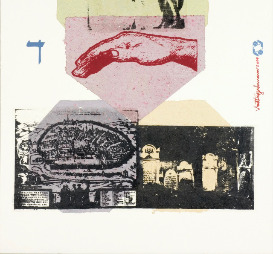Exílio e a retórica de violência divina em Jr 20:7-13
DOI:
https://doi.org/10.17851/1982-3053.12.22.145-161Palavras-chave:
Exílio, Violência, JeremiasResumo
O exílio Babilônico influenciou fortemente a linguagem da literatura profética. Dentre os livros proféticos nos quais observa-se esta linguagem de trauma e violência de forma mais viva, o livro de Jeremias merece atenção especial. O presente artigo tratará sobre a retórica da violência divina nos lamentos do profeta Jeremias, especificamente o de Jr 20:7-13.
Downloads
Referências
ALLEN, L. C. Jeremiah: A Commentary. Louisville, KY: Westminster John Knox Press, 2008.
AVIOZ, M. The Call for Revenge in Jeremiah's Complaints (Jer XI-XX). Vetus Testamentum, v. 55, Fasc. 4, p. 429-438, Oct., 2005.
BAUMGARTNER, W. Die Klagegedichte des Jeremia (BZAW, 32). Giessen: A. Töpelmann, 1917.
BAUMGARTNER, W. Jeremiah’s Poems of Lament. New York, NY: Bloomsbury Academic, 2015.
BLENKINSOPP, J. A History of Prophecy in Israel. Louisville, KY: Westminster John Knox Press, 1996.
BROYLES, C. C. The conflict of Faith and experience in the Psalms. Sheffield: Sheffield Academic Press, 1988.
BRUEGGEMANN, W. The theology of the book of Jeremiah. New York, NY: Cambridge University Press, 2007.
CLINES, D. J. A.; GUNN, D. M. Form, Occasion and Redaction in Jer 20. ZAW 88: p. 390-409, 1976.
CLINES, D. J. A.; GUNN, D. M. “You tried to persuade Me” and “Violence! Outage!” in Jeremiah XX 7-8, VT 28:20-27, 1978.
DAVIS, Ellen F. Biblical Prophecy. Louisville, KY: WJK, 2014.
DIAMOND, A. R. P. The Confessions of Jeremiah in Context (JSOTSup, 45). Sheffield: JSOT Press, 1987.
DIAMOND, A. R. P. Jeremiah’s Confessions in the LXX and MT: A Witness to Developing Canonical Function?, VT 40: 33-50.
JOHNSTON, P. S. “‘Now you see me, now you don’t’ Jeremiah and God”. Prophecy and the Prophets in Ancient Israel. John Day (Ed.). New York, NY: Bloomsbury, 2014.
KALMANOFSKY, Amy. Terror All Around: Horror, Monsters, and Theology in the Book of Jeremiah (Library of Hebrew Bible/Old Testament Studies 390). London/New York: T&T Clark, 2008.
O’CONNOR, Kathleen M. “Reclaiming Jeremiah’s Violence. The Aesthetics of Violence in the Prophets. Chris Franke e Julia M. O’Brien (Ed.). New York, NY: T&T Clark International, 2010. p. 37-49.
O’CONNOR, Kathleen M. “The Tears of God and Divine Character in Jeremiah 2-9”. Troubling Jeremiah, A. R. P. Diamond, Kathleen M. O’Connor e Louis Stulman (Ed.). Sheffield: Sheffield Academic Press, 1999. p. 387-403.
PEELS, E. “Jeremiah, Prophet of Ultimate Ruin and New Hope”. The Lion has Roared: Theological themes in the Prophetic Literature of the Old Testament H.G.L Peels e S. D. Snyman (Ed.). Eugene, OR: Pickwick Publications, 2012. p. 96-118.
SEITZ, C. R. Theology in Conflict. Berlin: W. De Gruyter, 1989.
SWEENEY, M. Reading the Hebrew Bible after the Shoah. Minneapolis, MN: Fortress, 2008.
SWEENEY, M. Tanak: A Theological and Critical Introduction to the Jewish Bible. Minneapolis, MN: Fortress Press, 2012.
THOMPSON, J. A. The book of Jeremiah. Grand Rapids, MI: Eerdmans Publishing Co., 1980.
Downloads
Publicado
Edição
Seção
Licença
O autor cede os direitos autorais à revista Arquivo Maaravi. Os direitos de licenciamento utilizados pelo periódico estão sob a Licença Creative Commons do tipo atribuição BY: são permitidos o compartilhamento (cópia e distribuição do material em qualquer meio ou formato) e adaptação (remix, transformação e criação de material a partir do conteúdo assim licenciado para quaisquer fins, inclusive comerciais.











